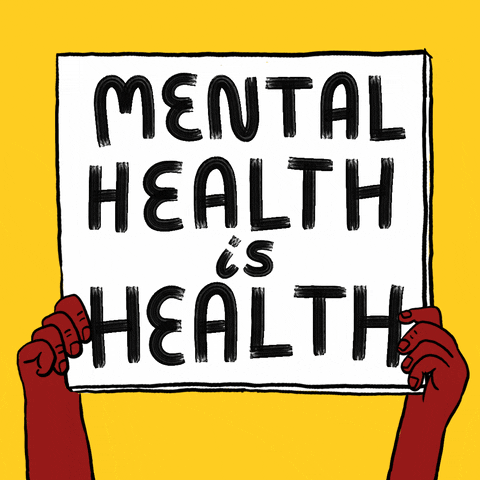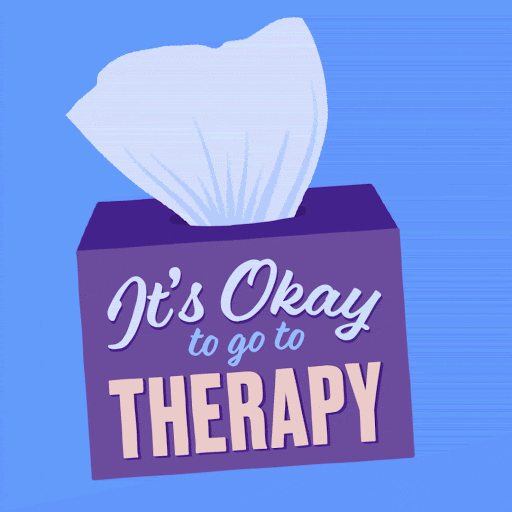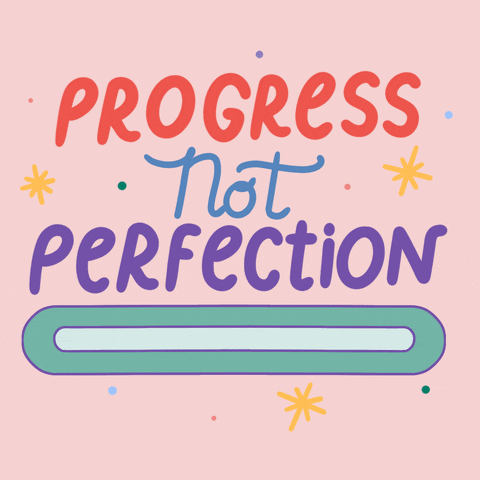How to Set Healthy and Effective Goals for Your Mental Health Treatment
Importance of Setting Mental Health Goals
Setting mental health goals is a valuable tool that can help facilitate recovery and improve overall wellness. These goals provide a vision for your future, guide your therapeutic process, and inspire you to make positive changes. You can take control of your mental health by setting specific, measurable, achievable, relevant, and time-bound (SMART) goals.
Framing Your Mental Health Goals
Identifying Long-term and Short-term Mental Health Goals
When setting mental health goals, it’s crucial to differentiate between long-term and short-term goals.
Short-term mental health goals are immediate targets that can be accomplished day-by-day or within a few weeks. They often serve as stepping stones that lead to the fulfillment of your long-term goals. Examples may include tasks like maintaining a daily routine, avoiding phone usage first thing in the morning, meditating for 10 minutes daily, expressing gratitude, etc.
On the other hand, long-term mental health goals are extensive and tend to be met over several months or years. They may reflect deeper desires and life changes you aim to make such as becoming an early bird, stopping a longstanding behavior like complaining, cultivating gratitude as a lifestyle, or establishing healthy boundaries. Mission-oriented mental health goals, such as reducing your PHQ-9 score or developing coping skills to handle depression and anxiety, fall within the long-term category too.
Remember, both short-term and long-term goals should reflect your unique needs, values, and aspirations. They should inspire you to become your best self but also be realistic to achieve.

Creating a Roadmap for Achieving Your Goals
One of the critical aspects of setting effective goals is having a plan — a roadmap, if you will. This roadmap provides detailed steps to navigate toward your desired destinations in terms of mental health.
To build this roadmap, you first need to dissect your long-term goals into smaller, manageable tasks that serve as your short-term goals. For instance, if your long-term aim is to reduce anxiety, your associated short-term goals could be, among others, implementing daily meditation or setting aside time for self-care. Make sure to clearly define these short goals and the steps required to achieve them.
Establish timelines for your goals. Decide when you wish to reach your short-term objectives and ultimately, the final long-term goal. A timeline creates urgency and helps maintain focus, motivating you to remain consistent.
Finally, keep adapting your plan as needed. Progress isn’t linear — you may hit roadblocks and need to find alternative ways to achieve your goals. It’s important to remain flexible and adjust your plan as required to better suit your evolving needs and life circumstances.
Commit to your roadmap, but also remember that it’s okay to diverge from it when it no longer serves you.
Develop Healthy Habits and Skills
Fostering Healthy Sleep Patterns and Exercise Regularly
To enhance your mental well-being, it’s essential to adopt healthy habits such as cultivating regular sleep patterns and exercising.
Sleep plays a pivotal role in mental health. According to research published in the journal “Nature,” sleep deprivation can lead to a range of adverse effects including cognitive impairment, reduced life quality, and issues such as obesity, hypertension, diabetes, depression, and fatigue. Adults are advised to sleep for 7-9 hours every night, whereas children and teens require more.
Many sleep hygiene strategies can promote better sleep. Try adhering to a consistent sleep and wake time, even during weekends. Go to bed only when you feel sleepy and make your bedroom environment as relaxing and conducive to sleep as possible.
Exercise is another crucial component of a healthy lifestyle, known for its mood-boosting properties. It helps enhance mood, reduce anxiety, and alleviate stress by stimulating the production of hormones like serotonin and endorphins. Even a brisk walk or 15 minutes of yoga daily can contribute positively to your mental health.
Practicing consistent sleep patterns and regular exercise are valuable strategies that will contribute to achieving your mental health goals.
Practicing Healthy Eating Habits and Self-Care
Healthy eating habits and self-care are other significant aspects of achieving your mental health goals.
Our diet largely impacts our physical health, but it also plays a vital role in our mental well-being. As per the guidelines by the Centers for Disease Control and Prevention, incorporating a range of fruits, vegetables, whole grains, lean proteins, and low-fat dairy options balanced with moderate exercise can significantly boost mental health.
Here are some tips to practice healthy eating habits:
- Add healthy snacks to your weekly grocery shop
- Prepare and pack a nutritious lunch for work
- Place more fruits, vegetables, whole grain foods, and low-fat dairy products at home
- Take meals at the dining table and make it an enjoyable experience
- Don’t rush your meals and control your portions
Alongside nutritious food, self-care is an underpinning component of mental health. Regularly taking time out to do things that bring happiness, peace, or relaxation can have a profound effect on well-being. This could be as simple as reading a book, soaking in a bubble bath, meditating, gardening, or any other activity that you enjoy.
So, start small and make incremental changes to practice healthy eating habits and imbibe self-care into your daily routine. These are surefire steps to enhancing your overall mental well-being.

Dealing with Obstacles and Challenges
Overcoming Mental Obstacles
Just as you would face physical obstacles on a journey, mental obstacles are a common part of the path toward achieving mental health goals.
Mental obstacles can take various forms, such as self-doubt, lack of motivation, overwhelming emotions, or negative thought patterns. They can be challenging to navigate, but remember, it is entirely possible to overcome them.
Here are some strategies to help you surmount these mental hurdles:
- Identify the Obstacle: Before you can overcome a barrier, you must understand what it is. Acknowledge your feelings and thoughts. Be honest with yourself about what’s holding you back.
- Mindfulness and Meditation: These practices can be effective in dealing with negative thoughts and emotions. They allow you to distance yourself from your worries and bring your attention to the present moment.
- Cognitive Behavioral Strategies: Techniques such as cognitive restructuring encourage you to scrutinize your thought patterns and replace negative thoughts with more positive or realistic ones.
- Reach out for help when needed: If the mental obstacles start affecting your ability to function, it might be time to seek help from mental health professionals. There is nothing wrong in asking for support when you need it.
Overcoming mental obstacles may require time and patience, but remember, each small victory is a step closer to your mental health goals.
Developing Coping Strategies for Stress
With stress playing a significant role in mental health, effective coping skills can greatly contribute to your well-being. Voyaging towards your mental health goals entails understanding what causes stress for you and developing strategies to handle it efficiently.
Here are a few strategies you can adopt:
- Physical Activity: Incorporate habitual physical activity into your routine. Even a short, brisk walk can help dissipate stress, leading to improved mood and decreased anxiety by stimulating endorphin production in the body.
- Mindfulness and Relaxation Techniques: Techniques such as yoga, meditation, deep breathing, progressive muscle relaxation, or even simple quiet reflection can help reduce your stress levels.
- Improve Sleep Habits: Adequate sleep is essential for stress management. Develop healthy sleep routines and ensure you get sufficient rest.
- Healthy Nutrition: Proper nutrition can boost your energy, lower stress, and aid in maintaining stable blood sugar levels. Consuming a diet rich in fruits, vegetables, lean proteins, and whole grains can support your mental health.
- Social Connections: Spend time with friends, and family, or join a community. Social interactions can be an excellent stress reliever.
- Counseling and Therapy: Engaging in therapy can provide you with tools to manage stress and navigate life’s challenges more effectively. Counselors, psychologists, and therapists are trained to help you understand and create strategies for dealing with stress.
Remember, everyone’s experience of stress is different, so what works for others might not work for you. Flexibility and patience are crucial in crafting your own unique set of stress-coping mechanisms.

Tracking Progress & Celebrating Milestones
The Importance of Keeping Track of Your Progress
Tracking your progress toward achieving your mental health goals is pivotal for long-term success. It is a powerful strategy that not only aids in ensuring your efforts are pushing you in the right direction but also increases motivation, allowing you to visually witness the progress made.
Maintaining a progress journal or using digital health apps is an easy way to log daily activities aligned with your mental health goals. Document whatever seems essential to your mental wellness journey, including specific emotions, thoughts, behaviors, and coping skills used. You can also note any strengths you’ve found in yourself or areas that might require more attention.
Research has shown that regularly evaluating your progress can improve your chances of achieving your goals by reinforcing your commitment to them. Additionally, it enables you to adjust your strategies if something isn’t working, ensuring that you’re not wasting time on ineffective methods.
Remember, progress might not always be immediately noticeable. Patience is required as you commit to your goals, celebrate small victories, and acknowledge every bit of growth.
Acknowledging and Celebrating Your Achievements
Succeeding in your goals, be they small or large, is worth acknowledgment. Celebrating these milestones can provide motivation, bolster your self-esteem, and amplify positivity. According to research, celebrating small wins can trigger the brain to release dopamine, a neurotransmitter associated with feelings of happiness and reward.
Acknowledging your achievements could be as small as marking off a completed goal in your progress tracker, giving yourself a mental pat on the back, or sharing your success with a trusted friend or family member. Also, it can involve rewarding yourself with a favorite activity, like enjoying a good book, going for a nature walk, or indulging in a healthy treat.
Remember, achieving a goal is not the only reason for celebration. The journey towards your mental health goals, the effort you put in, the resilience you display in the face of obstacles, and the learning you gain, all deserve recognition.
By honoring your achievements, you essentially celebrate the positive changes you are bringing into your life. It’s a gentle reminder of your ongoing commitment to your mental well-being and of the growth you’re achieving on your journey.

Connecting With Others
Bolstering your Support Network
Having a robust support network is invaluable when journeying towards mental health goals. According to an article published in “Public Health & Preventive Medicine”, people with a strong support system tend to be healthier than those without. Indeed, such networks can provide motivation, uplift spirits, enhance resilience, and even provide practical help when needed.
Here are a few ways to bolster your support network:
- Connect with Loved Ones: Spend quality time with friends and family who understand and back your aspirations. Their encouragement and advice can be of enormous relief.
- Join Support Groups: Whether online or in your community, support groups provide a shared platform to connect with others experiencing similar challenges. It’s a haven of mutual understanding, and you may learn new coping strategies or gain different perspectives.
- Find an Accountability Partner: An accountability partner checks your progress and provides a balanced blend of motivation and challenge. They can be a friend, family member, or a mental health professional.
- Prioritize Social Interactions: Engaging in social activities can promote a sense of belonging and mutual encouragement. It could be as simple as a book club meeting, a morning jog with friends, or volunteering at local community events.
- Tap into Professional Help: Lean on therapists, counselors, psychologists, or psychiatrists to guide you through your mental health journey. They can offer clinical insights, coping mechanisms, and comprehensive treatment plans.
Remember, reaching out to others in times of need isn’t a sign of weakness, but a strength. Let them know what you’re going through, how they can support you, and appreciate their help when offered.
Asking for Help and Utilising Professional Services
Asking for help is a brave and necessary step when it comes to mental health. Dealing with mental health issues can often feel isolating, but remember, you’re not alone. Many resources and professional mental health services are available to support you.
Some ways to ask for help may include:
- Opening up to Trusted Friends or Family: Share with them your experience, feelings, and concerns. Sometimes, a simple conversation can provide clarity, reassurance, and comfort.
- Reaching Out to Mental Health Helplines: These are immediately accessible modes of assistance available 24/7, providing support, advice, and even immediate crisis intervention.
- Consulting with Mental Health Professionals: Therapists, clinical psychologists, or psychiatrists can provide effective treatment modalities like cognitive-behavioral therapy (CBT), dialectical behavior therapy (DBT), psychotherapy, or medication management.
- Employing Online Mental Health Resources: Numerous online platforms offer mental health resources such as tools, articles, publications, and consultations on mental health.
Moreover, institutions often have on-campus mental health resources like Counseling and Psychiatric Services, providing free drop-in services. These offer invaluable support related to academics, stress, anxiety, substance use, relationships, and more.
Never feel guilty or shameful for asking for help. As defined by one Lawyer from London, finding the right counselor could mean feeling grounded, in control, and capable of moving forward. Indeed, asking for help means you value your well-being enough to strive for change.
Setting a goal to ask for help when you can’t do it alone is a crucial part of your mental health journey. It’s a step towards change, progress, and better mental health.

Frequently Asked Questions (FAQs)
Why is it important to set mental health goals?
Setting mental health goals is akin to laying out a roadmap for your healing and well-being journey. These goals help you identify your desired states of mental wellness, develop strategies to achieve them and mark your progress along the way.
Here are some key reasons why it’s essential to set mental health goals:
- Purpose and Direction: Goals provide a sense of purpose and a clear pathway to better mental health. They guide your actions and decisions towards desired outcomes, reducing feelings of uncertainty and overwhelm.
- Motivation and Engagement: Goals inspire you to actively engage with your healing process. They serve to remind you of why you started this journey and what you aspire to achieve, thus boosting intrinsic motivation.
- Structure and Focus: By formulating concrete steps toward your goals, you create a structured plan that keeps you focused and prevents you from straying off the path.
- Accountability: Goals enable you to keep track of your progress, hold yourself accountable, and adjust your strategies if required, thereby enhancing your self-efficacy.
- Boost Self-Confidence: Achieving small steps on the way to your big goals bolsters your self-confidence, reinforcing that change is possible, and you are capable of it.
In essence, setting mental health goals is critical because they guide, inspire, fuel persistence, and instill confidence in your capacity to heal and grow.
How can I effectively keep track of my progress?
Keeping track of your progress is vital for staying motivated and understanding whether your interventions are moving you toward your mental health goals. Here are some strategies to effectively track your progress:
- Use a Progress Journal: Dedicate a journal to note your daily activities, emotions, coping mechanisms, and achievements. Make a habit of reflecting on these entries at regular intervals to evaluate your progress.
- Leverage Technology: Make use of health and wellness apps or software that can help you efficiently track and analyze your progress. For instance, digital habit trackers, mood diaries, or mental health platforms that provide self-help tools and track therapy outcomes.
- Visual Representations: Use visual aids like calendars, goal boards, or charts to depict your progress. The visual representation of your small victories can be highly motivating.
- Set Measurable Milestones: Break down your goals into smaller, measurable milestones and check them off as you achieve them. This makes the journey towards intimidating-looking long-term goals much more manageable.
- Regular Reviews: Schedule regular self-review sessions to reflect on the journey so far and readjust your strategies if required.
- Engage with a Therapist or Counselor: They can provide professional assistance in evaluating your progression and offer you insights into your self-growth.
- Celebrate Wins: Be it small or big victories, take time to bask in the joy of your achievements which will motivate you to stay on the pathway to your goals.
By systematically keeping track of your progress, you not only keep yourself accountable and inspired but also enable interventions to be adjusted, ensuring they remain effective and suited to your changing needs.
- Optimal Health: Your Go-To Wellness and Nutrition Source Comprehensive Guide - August 29, 2024
- How to Set Healthy and Effective Goals for Your Mental Health Treatment - December 18, 2023

